Aksel Kolstad: WHEN SKY IS NOT THE LIMIT ANYMORE
When God shared his gifts, he was generous with the Norwegian Aksel Kolstad. He gave him the gift of playing the piano and music composing, of languages and stand up comedy, of playing basketball and being worldwide successful. The power of creation and inspiring people. And who knows, maybe the mission to start a cultural revolution. Ladies and gentlemen, an exclusive interview which Aksel Kolstad , this Quentin Tarantino of classical music, gave me last night, before his first concert in Bucharest, Romania.
When you were two, you already wanted to go the moon. You were a special child. How did this impact your relationship to other, let’s say, normal children? I was always very out there. I had such a great connection with my mother and father. There were no boundaries, no limits. Fairytale was everyday. Fiction was there, on a daily basis. I still live in a bubble where I don’t know what is right from wrong. In the sense that I don’t know if you’re real or not if you’re in my head or not. When I was two, my mother put a storybook on the piano. No music just pictures. And she said: play! So that’s the world I live in. And I come up with fairy tales, I come up with stories and I make them happen. I wanted to go to outer space so I wrote to Mr. Branson an e-mail, telling him “Hey, I want to perform in the International Space Centre.”
Did you get an answer? He must be pretty occupied but I’m sure he got the e-mail. But the fact that I actually sent him an e-mail is a statement saying “sky is not the limit anymore, is possible.” But he did sponsor a festival I did so we kind of know each other.
So, how about your relationship to children? I feel I connect better with children then with grown ups. Because children are always open minded while grown-ups sort of already made their decision about what they are and what they do. I like to play. And people my age and older, they forget how to play. So I get to play a lot. So that’s actually why it’s called to play an instrument. You play. You enjoy it. You are there.
When you were 17 you chose music over basketball. Why was that? My father was the coach of Norway’s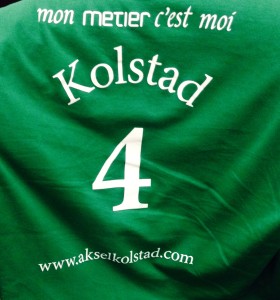 National Basketball Team. He also played in the United States. Basketball was the love of my life. Also music. But I couldn’t do both. It was actually my father who told me I should do music. It was hard because I wanted to play high school in the US, I wanted to aim for the NBA. Even though I’m short and white but I can jump. I used to jump. But then I decided to let go and couldn’t touch a basketball for ten years. It was so painful for me. But then when I finished studying music, I had a debut. And I had my Converse shoes on. My t-shirts look like basketball t-shirts. I see art in sport and I see sport in art. When you play chamber music, for example, is like a basketball game or a football game. It’s precision, it’s timing, it’s teamwork. You sweat; you try to shake off your opponent. There are so many similarities, which I would like to present to the audience.
National Basketball Team. He also played in the United States. Basketball was the love of my life. Also music. But I couldn’t do both. It was actually my father who told me I should do music. It was hard because I wanted to play high school in the US, I wanted to aim for the NBA. Even though I’m short and white but I can jump. I used to jump. But then I decided to let go and couldn’t touch a basketball for ten years. It was so painful for me. But then when I finished studying music, I had a debut. And I had my Converse shoes on. My t-shirts look like basketball t-shirts. I see art in sport and I see sport in art. When you play chamber music, for example, is like a basketball game or a football game. It’s precision, it’s timing, it’s teamwork. You sweat; you try to shake off your opponent. There are so many similarities, which I would like to present to the audience.
You’re known as a classical rebel. What’s a rebel? I see myself as a rebel because I challenge the traditional frames. I have this concept called “Cafe de Concert” , a place where I demolish the frames of the traditional concert venue. We serve champagne and hot-dog. There is a piano in the toilet for private concerts. We perform Beethoven with pole -art dancers. It’s pretty wild out there. People come in casual clothing, we perform in casual outfits. We have a party after the concert with a DJ. I combine different genres of arts with classical music. We just opened in New York City a week ago. The same concept as in Oslo. They loved it, I played, we had photo exhibition, multi-media shows, presented classical music in a new way. Letting people know that Mozart had actually group sex after concerts. That’s an interesting fun fact but you don’t read about this in school. The music is the same but the environment is different. Many artists want to perform at Cafe de Concert but we say no many times because we want them to be very special. We need them to do things the way we want to be done. If they are not comfortable in wearing anything other than black, they go out. Black colour is not allowed on stage.
How do you interact with your audience during these shows? The interaction comes when I do the stand up comedy because they laugh. That’s another universal language, laughter. If I laugh, you laugh and we have something in common. When I have concerts with kids, I interact with them on stage. I bring them on stage and they do things with me.
Do we need a revolution in art? In the eighteenth century we put on black and white because that was what our audience was wearing at that time and we wanted to relate more to them, which was good. Now, the audience is no longer in black and white but we are still. So we need things to happen. Not with the music but with the framing. There are things happening. Some of them bad.
Give me an example? Crossover. Mix Mozart music with modern beat. It’s like saying to the audience you’re so stupid I need to put beats to music.
How does it feel to be compared to Liszt or to be called “the Quentin Tarantino of classical music”? That’s something I want to write on my tomb when I die. It’s an amazing privilege. Liszt was a genius.
Who is your favourite composer? Rachmaninov. Liszt, of course. Although I don’t play so much Liszt, I just write in his style. I love Ravel and Stravinsky.
You’re a composer. What inspires you? Life. Crazy situations. Adrenaline. Surrealism. Craziness. Love. Passion. All the foolish things I’ve done, do and will do in my life.
- Before the show
- Stage outfits., no black allowed
- Photo Exhibition
- Waiting for Aksel
- Smile is contagious
- A bit of stand-up comedy
- Red sneakers
- Aksel, Cornelia Tihon and Igor’s cousins
- Aksel as Mozart interacting with the audience
- Mozart revival
- Playing
- The musician, the girl and the fish
How did you learn to do stand up comedy? I never did, actually. It just happened. When I started ” Cafe de Concert”, I had concerts every day. My colleagues would perform and I would be the MC. I would introduce everyone. And people would laugh and I would wonder “am I funny to look at or am I funny?” Maybe a combination. After a while, I wrote down everything I said from time to time and than I had a stand up comedy show.
You speak several languages. Six or seven among which Italian, German, French. This I understand. But Turkish? It depends on how sober I am (he laughs). My father grew up in Turkey. We do speak Turkish at home.
You have a famous golden fish, Igor. What’s his story? He’s four years old now. He is my roommate. He travels with me all over the world but now he is in Norway, his two cousins will be on stage with me tonight. Igor is a great philosopher and he’s my alter ego. I wrote him some music called “gold fish preludes”. Chopin and Bach wrote preludes for piano, I write preludes for Igor.
A charity event brings you to Romania for the first time. Why do you do charity events? As a musician, one of the few musicians who are able to make a living out of the things you love, I feel obligated to give something in return. This is why I do these kind of projects once or twice per year. Beyond that, any possibility you get to reach out to young people, to children and make a difference with music is magic. Because children are at a stage in their life when they absorb everything you do and if you are able to give them something like music and the way I present music, you bring changes in their life, they get inspired, they can achieve things they didn’t know they can achieve.
Charity is just for artists or for every human being? Everybody should help everybody but this is not how the world is. Some people are able to help in better and different ways and music is one of these better and different ways. Because it’s a universal language, you don’t use words but feelings and sentiments. And I think when a musician gets the opportunity he should do it. However, I think it’s very, very important musicians don’t do too much charity because then they will have empty pockets (he laughs).
Being busy and famous, do you have time for social media? I have staff that takes care for me of social media. It’s very important, if you want to express yourself to an audience, through an instrument, in some way you have to be able to communicate with them with no instrument. In my country I am one of the few who promotes himself very much through Youtube and Facebook. I would practice a piece and then put it on the Internet just to show people “look what I am doing.” Something other people think is ridiculous. I’m doing it to make people interested. The social life is very important although I am very selective with whom I get to meet. I love to party although I don’t drink at all.
This interview was made courtesy of Prom’Art Creative organisation that brought Aksel Kolstad to Bucharest , Romania for a charity event aimed at raising funds for the children in the two foster houses ran by Hand2Hand Association and encouraging gifted children to pursue their dreams.

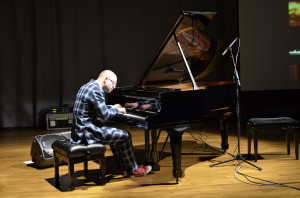
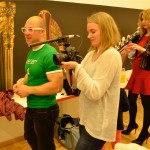
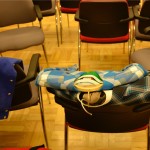
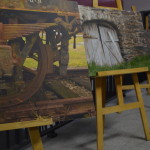
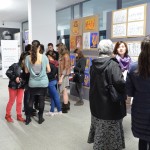
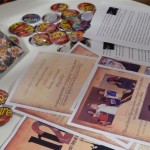
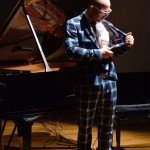
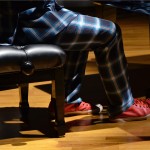
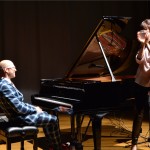
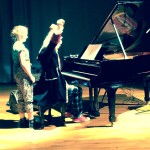
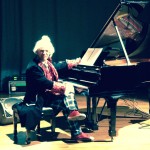
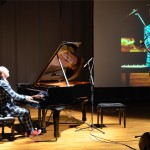
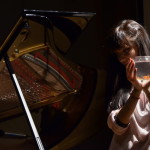
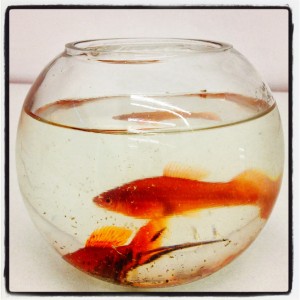




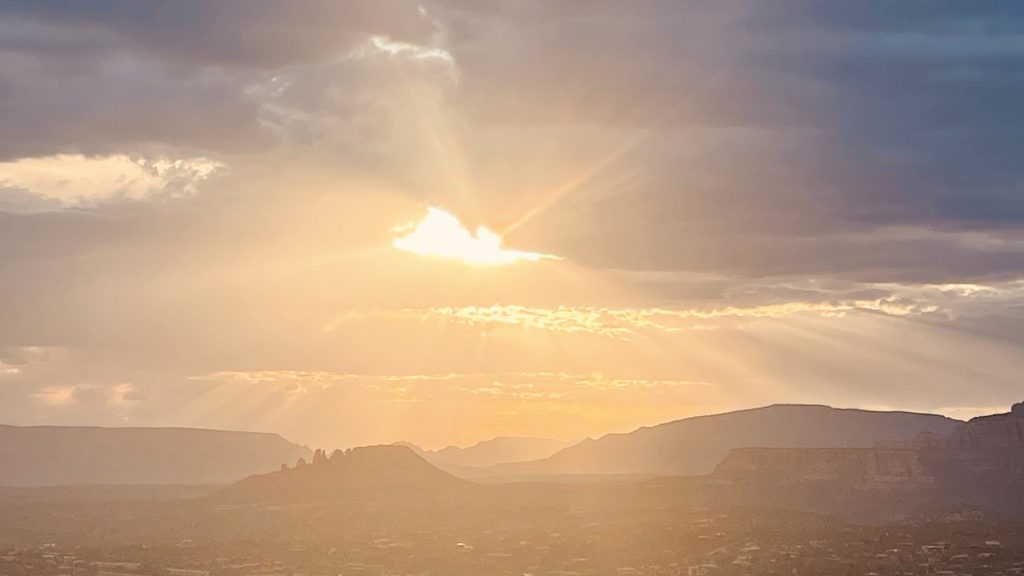


Leave a Reply